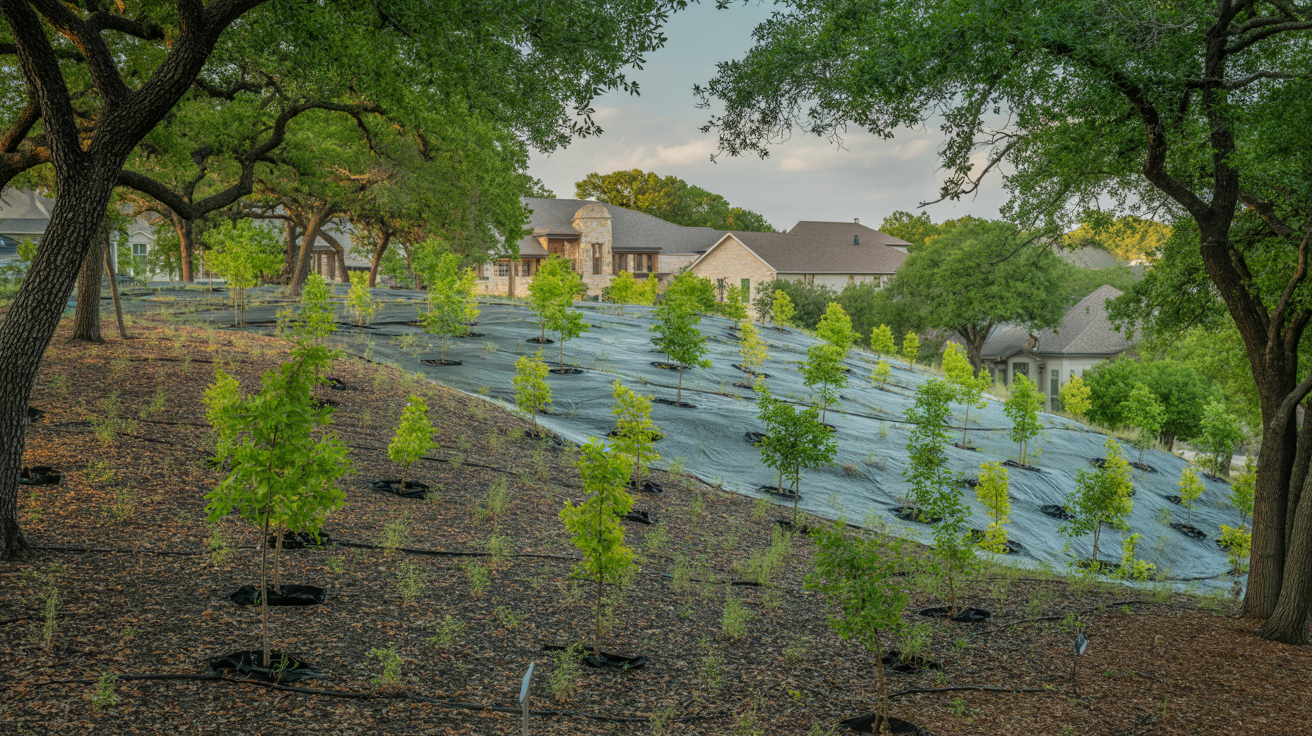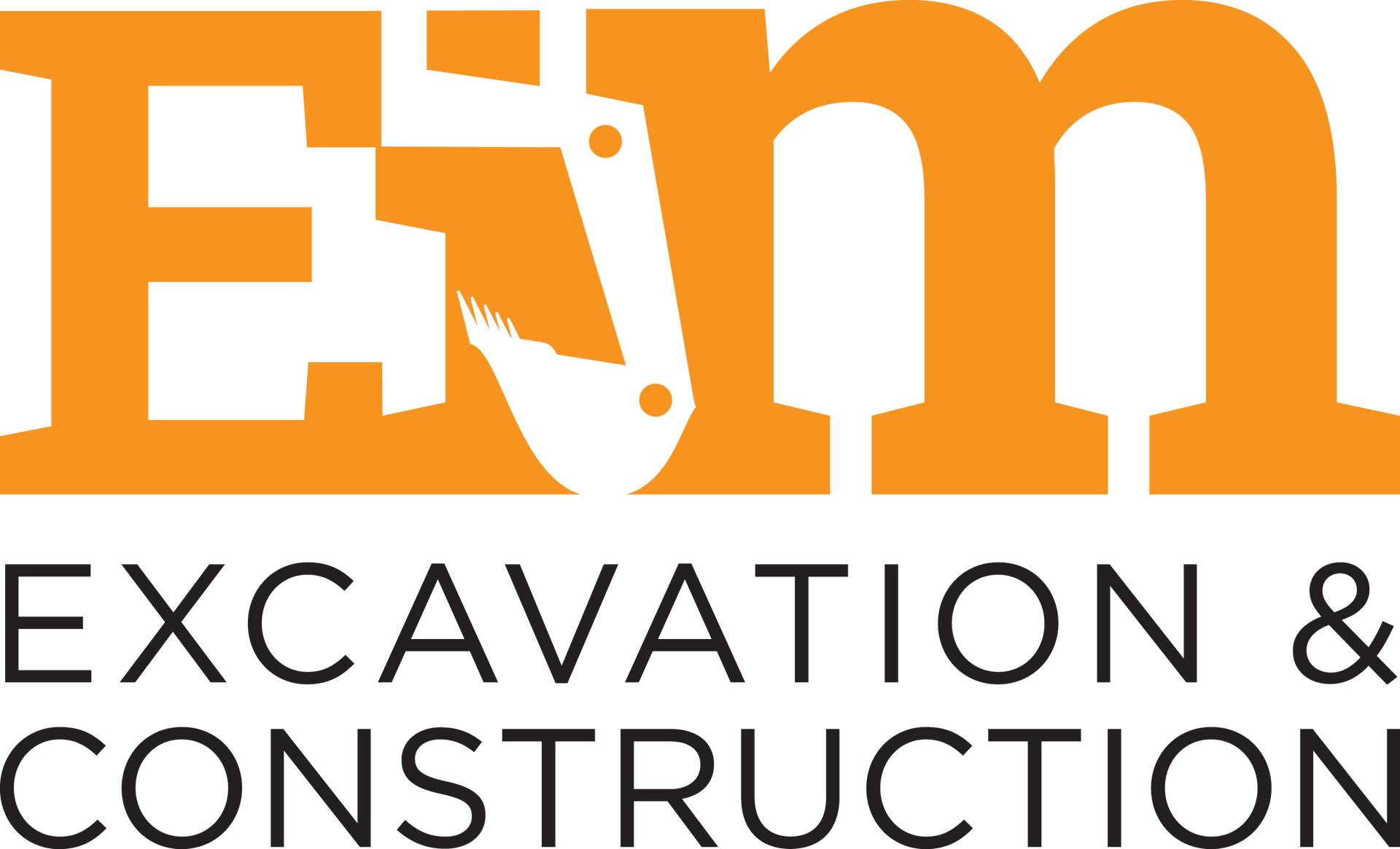Excavation Contractors in Austin
Finding the Right Excavation Contractors in Austin

Are you struggling to find a reliable excavation contractor in Austin who actually understand what they're doing? You're not alone. With Austin's unique terrain throwing curveballs at every turn and countless contractors claiming they're the best, finding the right team for your project can feel like searching for a needle in a haystack.
Here's the thing about Austin – this city isn't just growing, it's exploding. From the clay-rich eastern neighborhoods to the rocky western hills, every piece of land comes with its own set of challenges. You need excavation contractors who don't just show up with a backhoe and hope for the best. You need professionals who understand that Austin's soil can shrink faster than your patience during rush hour traffic, and who know exactly how to handle the humid summers and unpredictable weather that can turn your construction timeline upside down.
In this guide, we're going to walk through everything you need to know about finding and working with excavation contractors in Austin. We'll cover what these professionals actually do, why Austin's terrain requires specialized knowledge, how to choose the right contractor for your specific needs, and what you can expect to pay. By the time you finish reading, you'll have the confidence to make an informed decision that protects both your project and your wallet.
What Do Excavation Contractors in Austin Actually Do?
Let's start with the basics because excavation work is way more complex than most people realize. When you hear "excavation," you might picture someone digging a hole, but that's like saying a chef just heats up food. Professional excavation contractors in Austin handle a wide range of specialized services that form the foundation of virtually every construction project in the city.
Land Clearing and Site Preparation
Before any construction can begin, your property needs to be properly prepared. This isn't just about removing a few trees and calling it good. Excavation contractors in Austin start by conducting thorough site assessments to understand soil composition, drainage patterns, and potential obstacles. They'll remove existing structures, clear vegetation, and handle debris removal in an environmentally responsible way.
The land clearing process in Austin requires special attention because of our diverse ecosystem. Contractors need to identify protected trees, understand local environmental regulations, and work around utility lines that might not be properly marked on older properties. A good excavation team will also consider how their clearing work affects neighboring properties, especially important in Austin's densely packed neighborhoods where houses sit close together.
Site preparation goes beyond just clearing. It involves grading the land to ensure proper drainage, compacting soil to create stable building surfaces, and establishing access routes for other construction vehicles. In Austin's clay-heavy soil, this preparation work is absolutely critical because improper grading can lead to foundation problems down the road.
Foundation Excavation
Foundation work is where excavation contractors in Austin really earn their keep. Austin's soil conditions create unique challenges that require both experience and specialized equipment. The clay-rich soil in many parts of the city expands when wet and contracts when dry, creating movement that can crack foundations if not properly addressed.
Professional excavation contractors understand how to dig foundations that account for these soil characteristics. They know the proper depths for different foundation types, how to create stable excavation walls, and when additional soil stabilization measures are necessary. They also coordinate with structural engineers to ensure that excavation work meets all building code requirements and engineering specifications.
The foundation excavation process involves more than just digging a hole. Contractors must carefully manage water infiltration, especially during Austin's rainy seasons. They install temporary drainage systems, use proper shoring techniques to prevent cave-ins, and ensure that excavated soil is properly managed and disposed of according to local regulations.
Utility Trenching and Installation
Modern homes and businesses require extensive utility infrastructure, and excavation contractors in Austin play a crucial role in installing these systems. This includes digging trenches for water lines, sewer connections, electrical conduits, gas lines, and increasingly, fiber optic cables for high-speed internet.
Utility trenching in Austin requires precise knowledge of local codes and regulations. Different utilities have specific depth requirements, separation distances, and installation procedures. Contractors must also coordinate with multiple utility companies to ensure that new installations don't interfere with existing infrastructure.
The challenge in Austin is that our rapid growth means utility maps aren't always accurate or up to date. Experienced excavation contractors know to call 811 before digging and use additional detection equipment to locate existing utilities. They also understand how Austin's soil conditions affect different types of utility installations and can recommend the best approaches for long-term reliability.
Why Austin's Terrain Requires Specialized Excavation Contractors
Austin isn't just another city where you can apply generic excavation techniques and hope for the best. Our unique geography and climate create specific challenges that require local expertise and specialized approaches. Understanding these challenges helps explain why choosing the right excavation contractors in Austin is so important for your project's success.
Clay-Rich Soil Challenges
The eastern parts of Austin sit on what geologists call the Blackland Prairie, characterized by deep, clay-rich soils that can be both a blessing and a curse for construction projects. These soils are incredibly fertile, which is why early settlers chose this area for farming, but they present significant challenges for modern construction.
Clay soil has a high plasticity index, meaning it expands significantly when it absorbs water and contracts when it dries out. During Austin's wet seasons, clay soil can expand by several inches, creating tremendous pressure against foundation walls and basement structures. Conversely, during our notorious summer droughts, the same soil can shrink and pull away from foundations, creating gaps that allow water infiltration and structural instability.
Excavation contractors in Austin who understand these soil characteristics know how to work with clay rather than against it. They use specialized techniques like soil stabilization, proper drainage installation, and strategic moisture management to minimize the negative effects of soil movement. They also know when to recommend alternative foundation types or additional engineering measures to ensure long-term stability.
The western parts of Austin present different challenges, with shallow, rocky soils that can be difficult to excavate but provide more stable building conditions. Contractors working in these areas need different equipment and techniques, including rock hammers and specialized cutting tools to work through limestone and other hard materials.
Weather Impact on Excavation Work
Austin's climate adds another layer of complexity to excavation work. Our summers can be brutally hot and dry, while our winters bring unpredictable weather patterns that can include everything from ice storms to flooding. These weather extremes affect both the excavation process and the long-term performance of completed work.
During hot, dry periods, clay soils become extremely hard and difficult to excavate. The soil can become so compacted that standard excavation equipment struggles to penetrate it effectively. Experienced contractors know to schedule major excavation work during optimal weather windows and have contingency plans for weather-related delays.
Austin's rainfall patterns are notoriously unpredictable. We can go months without significant rain, then receive several inches in a single storm. This variability means that excavation contractors must be prepared to manage water infiltration quickly and effectively. They need proper pumping equipment, temporary drainage systems, and the expertise to modify their approach based on changing conditions.
The humidity in Austin also affects excavation work in ways that many people don't consider. High humidity can slow the drying and curing of concrete and other materials, while also creating conditions that promote mold and mildew in excavated areas that aren't properly ventilated.
Local Regulations and Permits
Austin's rapid growth has led to increasingly complex regulations governing excavation work. The city has implemented strict environmental protection measures, tree preservation ordinances, and development standards that affect how excavation work can be performed.
Professional excavation contractors in Austin stay current with these changing regulations and understand how to navigate the permitting process efficiently. They know which projects require special permits, how to coordinate with city inspectors, and what documentation is needed to ensure compliance.
The permitting process in Austin can be particularly complex for projects that involve environmental sensitive areas, historic districts, or properties with existing deed restrictions. Contractors who regularly work in the city understand these nuances and can help property owners avoid costly delays and compliance issues.
How to Choose the Best Excavation Contractors in Austin
Selecting the right excavation contractor can make the difference between a smooth, successful project and a nightmare that drags on for months while costs spiral out of control. Here's what you need to look for when evaluating excavation contractors in Austin.
Experience with Local Soil Conditions
This cannot be overstated – Austin's soil conditions are unique, and experience matters tremendously. Look for contractors who have been working in the Austin area for several years and can provide examples of projects similar to yours. Ask specific questions about how they handle clay soil, what techniques they use for soil stabilization, and how they manage drainage in different soil types.
A good contractor should be able to explain the soil conditions on your specific property and discuss potential challenges before work begins. They should also be willing to recommend soil testing if there are any uncertainties about subsurface conditions. Contractors who try to give you a firm quote without understanding your soil conditions are probably not the right choice.
Experience with local conditions also means understanding seasonal variations and how they affect excavation work. Contractors who have worked through multiple Austin summers and winters understand how to schedule work for optimal conditions and how to adapt their techniques based on weather and soil moisture levels.
Equipment and Technology
Modern excavation work requires more than just basic digging equipment. Look for contractors who invest in quality, well-maintained equipment and stay current with technological advances in the industry. This includes not just excavators and bulldozers, but also specialized equipment for soil compaction, drainage installation, and precision grading.
GPS-guided grading systems have become increasingly important for ensuring accuracy in excavation work. These systems allow contractors to achieve precise grades and elevations, which is particularly important for drainage and foundation work. Contractors who use this technology can often complete work more quickly and accurately than those relying on traditional surveying methods.
Safety equipment is another important consideration. Professional contractors should have proper safety gear for their workers, environmental protection measures to prevent soil erosion and water contamination, and insurance coverage that protects both their workers and your property.
Licensing and Insurance Requirements
All legitimate excavation contractors in Austin should be properly licensed and insured. This includes a Texas contractor's license, local business permits, and comprehensive liability insurance. Don't hesitate to ask for proof of insurance and verify that coverage is current and adequate for your project.
Workers' compensation insurance is particularly important because excavation work involves significant safety risks. If a contractor doesn't carry workers' comp and someone gets injured on your property, you could be held liable for medical expenses and other damages.
Professional contractors should also be bonded, which provides additional protection if they fail to complete work according to contract terms. Bonding requirements vary based on project size and scope, but it's always a good sign when contractors voluntarily carry bonding coverage.
Common Excavation Projects in Austin
Understanding the types of projects that excavation contractors in Austin typically handle can help you better communicate your needs and set realistic expectations for your own project.
Residential Foundation Work
Foundation excavation is one of the most common services provided by excavation contractors in Austin. This includes excavation for new home construction, foundation repairs, and additions to existing structures. Each type of foundation work presents unique challenges and requirements.
For new construction, contractors must excavate to precise depths and dimensions specified by structural engineers. This work must account for Austin's soil conditions and include proper drainage measures to prevent future foundation problems. The excavation must also provide adequate working space for foundation contractors to install footings, walls, and waterproofing systems.
Foundation repair excavation is often more complex than new construction because contractors must work around existing structures and utilities. They may need to excavate under existing foundations to install piers or other support systems, requiring specialized techniques to prevent damage to the existing structure.
Addition excavation requires careful coordination with existing foundation systems and utilities. Contractors must ensure that new excavation work doesn't compromise the stability of existing structures while providing proper connections between old and new foundation elements.
Commercial Site Development
Commercial excavation projects in Austin range from small office buildings to large retail developments and industrial facilities. These projects typically involve more complex site preparation, larger volumes of excavated material, and coordination with multiple other contractors and utility companies.
Commercial site development often requires extensive grading work to create level building pads, parking areas, and drainage systems. This work must be coordinated with civil engineers and landscape architects to ensure that the finished site meets all functional and aesthetic requirements.
Many commercial projects in Austin also require specialized excavation for underground utilities, detention ponds, and other infrastructure elements. Contractors working on these projects need experience with larger equipment and more complex project management requirements.
For those considering comprehensive site development services, Austin area excavation and site preparation services can provide the expertise needed for complex commercial projects.
Landscaping Excavation
Landscaping excavation includes work for retaining walls, garden beds, drainage systems, and outdoor living spaces. This type of work often requires smaller equipment and more precise techniques, but still requires understanding of local soil conditions and drainage requirements.
Cost Factors for Excavation Work in Austin
Understanding what affects excavation costs in Austin can help you budget appropriately and avoid surprises during your project. Several factors influence pricing, and the best contractors will be transparent about these considerations when providing estimates.
Project Size and Complexity
The size and complexity of your excavation project are the primary factors affecting cost. Simple projects like small foundation excavations or utility trenches are typically priced per linear foot or cubic yard of excavated material. More complex projects that require specialized techniques or equipment command higher rates.
Complexity factors include the depth of excavation, the need for shoring or other safety measures, proximity to existing structures, and the requirement for specialized equipment. Projects that require rock excavation or work in confined spaces typically cost more than straightforward earthwork in open areas.
Access to the work site also affects complexity and cost. Sites that are difficult to reach with large equipment may require smaller machines or hand excavation, both of which increase labor costs and project duration.
Soil Conditions and Access
Austin's varied soil conditions significantly impact excavation costs. Clay soil that requires special handling or stabilization measures costs more to excavate than sandy or loamy soils. Rocky conditions that require hammering or blasting also increase costs substantially.
Soil disposal costs are another important factor. In Austin, excavated soil that can be reused on-site or easily disposed of costs less to handle than contaminated soil or material that requires special disposal procedures. Some clay soils expand significantly when excavated, creating larger volumes of material that must be hauled away.
Site access affects both equipment selection and labor efficiency. Sites with good access for large equipment typically cost less per cubic yard than sites that require smaller machines or longer haul distances for excavated material.
Timeline and Seasonal Considerations
The timing of your excavation project can significantly affect costs. Peak construction seasons in Austin typically see higher prices due to increased demand for contractor services. Weather delays during rainy seasons can also increase costs if contractors need to return multiple times to complete work.
Rush projects that require contractors to work overtime or weekends command premium pricing. Planning your project well in advance and being flexible with timing can help reduce costs.
Seasonal soil conditions also affect pricing. Excavation work during dry periods when clay soil is hard and compacted may require more time and equipment wear, increasing costs. Conversely, work during wet periods may require additional pumping and drainage measures.
What permits are needed for excavation work in Austin?
Most excavation projects in Austin require building permits, and some may need additional environmental or tree removal permits. Your contractor should handle permit applications, but you'll typically need site plans, soil reports, and engineering drawings. Projects near waterways or in environmentally sensitive areas may require additional approvals. Always call 811 before any excavation work to locate underground utilities – this is required by law and helps prevent dangerous and expensive accidents.
How long does a typical excavation project take?
Timeline depends on project size and complexity, but most residential foundation excavations take 1-3 days to complete. Larger commercial projects may take several weeks or months. Weather can significantly impact schedules, especially during Austin's rainy seasons when clay soil becomes difficult to work with. Good contractors will provide realistic timelines and communicate promptly about any delays. Factor in additional time for permit approvals and utility locating services when planning your overall project schedule.
When you're ready to move forward with your excavation project, remember that choosing experienced excavation contractors in Austin who understand our unique local conditions is one of the most important decisions you'll make for your construction project's success.



